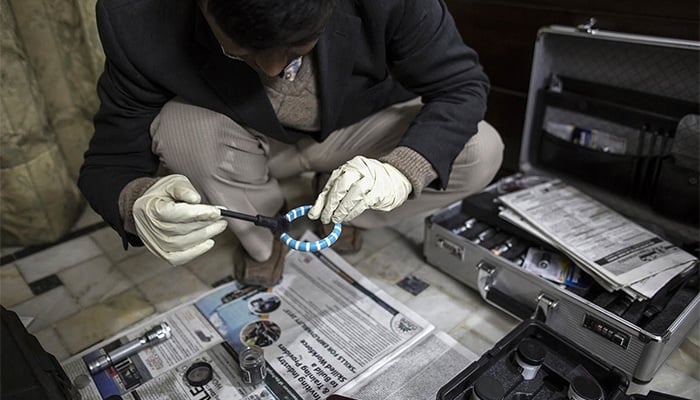Senate passes NFA bill to combat electronic offences involving deep fakes
Bill aims at transforming NFA project into independent agency to enhance forensic capabilities across country
December 13, 2024

- Tarar says digital forensic lab to be established.
- "Existing conventional forensic labs to be upgraded."
- Amendments moved by senators passed by upper house.
The Senate on Friday passed the National Forensics Agency Bill, 2024 unanimously with certain amendments to enhance forensic capabilities across Pakistan with key initiatives including establishing a digital forensic lab.
The bill, aimed at transforming the National Forensics Agency (NFA) project into a full-fledged, independent agency, was introduced by Interior Minister Mohsin Naqvi on October 17.
"The NFA will integrate digital and cyber forensics to combat crimes involving electronic devices, deep fakes, and other electronic offenses," read a statement of aims and objectives of the bill.
Moreover, the NFA will also develop a center of excellence and R&D department to make it a self-sustainable agency. Furthermore, it will also envisage developing indigenous solutions to minimise the dependence on foreign governments and agencies, it added.
Minister for Law and Justice Azam Nazeer Tarar piloted the bill in the upper house on behalf of the interior minister.
Sharing the details, Tarar said that through NFA, the existing conventional forensic labs would be upgraded and a digital forensic lab would be established "that will provide services to all provinces, Gilgit-Baltistan (GB), Azad Jammu and Kashmir (AJK), and government/private forensics labs".
He said establishing an independent NFA in Pakistan is essential to address the challenges arising from the current fragmented forensic services that lead to inconsistent standards and capabilities across the country.
The minister said that currently, there was a forensic laboratory in Lahore — set up by incumbent Prime Minister Shehbaz Sharif — in 2010.
The laboratory had already overloaded and there was need of the hour that all provincial governments should also include setting up such labs in their respective provinces, he added.
He said that setting up a state-of-the-art forensic laboratory would also help eradicate crimes.
Senators Quratulain Marri and Zamir Hussain Ghumro moved their amendments passed by the Senate.
Earlier, the federal government had proposed setting up a National Forensics and Cybercrime Agency (NFCA) to eradicate cybercrimes and other criminal activities through the use of artificial intelligence and smart digital technology.
A draft of the “National Forensics and Cybercrime Agency Act 2024” had also been prepared, The News reported in July.
Besides using traditional methods of investigation including pathology, DNA analysis, toxicology, narcotics, fingerprints, serology, ballistics, explosives, odontology, document examination and crime scene investigation, the NFCA will investigate crime using artificial intelligence and smart digital technology.
— With additional input from APP











